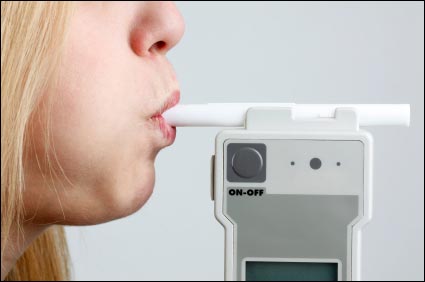Virginia DUI Arrest Attorneys

 In Virginia, a DUI is a serious offense with serious penalties. DUI in Virginia is a class 1 misdemeanor and a person convicted of DUI could get possible jail time. To be convicted of a DUI, a person must have been “operating” a motor vehicle at the time of intoxication. As the statute states, driving with a blood alcohol concentration (BAC) of 0.08 or more creates a presumption that at the time of operating the vehicle, the person was under the influence. The blood alcohol level is the percentage of alcohol found in the bloodstream after consuming alcoholic beverages. Narcotic drugs or any combination of drug and alcohol may also result in a DUI charge if they impair the ability to drive or operate a motor vehicle. If the person charged is under 21 years of age, the penalty is different.
In Virginia, a DUI is a serious offense with serious penalties. DUI in Virginia is a class 1 misdemeanor and a person convicted of DUI could get possible jail time. To be convicted of a DUI, a person must have been “operating” a motor vehicle at the time of intoxication. As the statute states, driving with a blood alcohol concentration (BAC) of 0.08 or more creates a presumption that at the time of operating the vehicle, the person was under the influence. The blood alcohol level is the percentage of alcohol found in the bloodstream after consuming alcoholic beverages. Narcotic drugs or any combination of drug and alcohol may also result in a DUI charge if they impair the ability to drive or operate a motor vehicle. If the person charged is under 21 years of age, the penalty is different.
In order for a police officer to place a person under arrest for DUI, he/she has to have some probable cause. The officer will normally observe the persons appearance and behavior, and will usually conduct field sobriety tests when the person is stopped to establish probable cause for an arrest.
At trial, the prosecutor (or police officer depending on the jurisdiction) has the burden of proving its case against the accused beyond a reasonable doubt. The officials will normally prove their case against the accused by having the officer testify to driver’s appearance and coordination and driving behavior when stopped. Also, the prosecutor will normally place emphasis on the Certificate of Analysis. This is because a person with a BAC of .08 or more is presumed to be under the influence.
Virginia Dui Arrest
An evening out with friends can quickly become a life-changing event when the drive home is interrupted by the lights and siren of a police car. Arrests for driving under the influence are on the rise throughout the Hampton Roads region, but a Virginia DUI arrest is not a conviction. It is merely an unproven accusation until the case goes to court where prosecutors must present evidence proving each element of a DUI offense. The attorneys at the Law Offices of John W. Lee, P.C., know an aggressive defense strategy offers the best opportunity for avoiding the fines, imprisonment and other consequences of a conviction.
What Is Driving Under the Influence in Virginia?
Operating a motor vehicle while under the influence of alcohol or drugs is a violation of the law throughout the Commonwealth. Charges against a motorist can be based upon the observations of the arresting officer or on the results of a chemical test showing a driver’s blood alcohol concentration.
Events Leading to an Arrest for Driving While Intoxicated
The events leading up to a DWI arrest usually begin when a police officer observes a motorist driving erratically. It could also begin with a routine stop for speeding, unsafe lane change or some other violation of the traffic law noticed by a police officer.
Police cannot stop a motorist without observing an actual violation of the law or having reasonable suspicion to believe the law is being violated. Once a vehicle has been stopped, the officer will note any behaviors on the part of the driver indicating intoxication. Some of the commonly observed indicators include:
- Slurred speech
- Difficulty recalling common words
- Red, bloodshot eyes
- Dilated pupils
- Disheveled clothing
- Odor of alcohol
- Jerky, uncoordinated hand and body movement
- Slow in responding to questions
Field Sobriety Testing
Any of these indicators could cause a police officer to suspect a person is impaired and prompt the officer to ask the person to submit to a field sobriety test. The test is a series of activities a driver is asked to perform under the careful watch of the police officer making the request. The activities usually include the following::
- Touching the tip of the nose with the forefinger.
- One leg stand
- Reciting the alphabet
- Walking a straight line, heal-to-toe in one direction and turning around and walking back
- Counting, usually backwards.
- Horizontal gaze nystagmus: Motorists are asked to use only their eyes to follow the side-to-side movement of an object held in front of their face by a police officer. Jerking movement of the eyes is an indication of intoxication.
- Walk and turn: Drivers are asked to walk a specific number of steps using a heel-to-toe movement along a straight line before turning on one foot and repeating the process in the opposite direction. Someone who is impaired will have difficulty performing the task.
- One-leg stand: As its name implies, a driver must stand with one foot raised about six inches off the ground and hold the position for 30 seconds. People under the influence of alcohol will usually have trouble maintaining their balance.
The officer may also ask the person to blow into a portable device to measure the blood alcohol content while at the scene. The results of this test, along with the field sobriety tests and any other observations will be used to develop probable cause for the arrest.
Usually after the person is placed under arrest, he/she will be taken to the police station and will be asked to blow into a machine called the Intoxilyzer Model 5000.
Field Sobriety Testing (Cont.)
This machine will measure the blood alcohol content of the breath sample. Once the test is finished, a certificate will be generated indicating the persons BAC.
This certificate is called the Certificate of Analysis and will be used by the prosecutor at trial. It is not smart to refuse to blow into the Intoxilyzer Model 5000 at the station because you will be charged with refusal in addition to DUI.
It is usually left to the discretion of the police officer whether to include other activities in a field sobriety test. These might include asking a motorist to recite the alphabet or to count backwards. Failure of a motorist to satisfactorily perform any of the activities could give a police officer probable cause to arrest the person for DWI.
Blood Alcohol Concentration
Following a Virginia DUI arrest, police will ask the person to submit to a chemical test to measure blood alcohol concentration. The test measures a breath or blood sample given by the motorist. A person with a BAC level of 0.08 percent or higher is legally intoxicated under commonwealth law.
Drivers who refuse to submit to chemical testing are subject to a one-year suspension of their driving privileges under Virginia’s implied consent law. The law makes having a driver’s license a privilege and not a right, so the government can impose reasonable conditions on it. One of those conditions is consenting to blood or breath testing when requested to do so by a police officer having probable cause to believe the person was driving while intoxicated.
The results of a chemical test may be introduced into evidence to prove a motorist was intoxicated when the BAC is at least 0.08 percent. In fact, police and prosecutors usually file two charges against a motorist following an arrest for impaired driving. One of the charges is based upon the observations of the police officer, including the driver’s performance on sobriety tests, and the other charge is based upon the BAC level.
What Is Meant by “Operating a Motor Vehicle” for Purposes of an Arrest?
The statutory language prohibiting intoxicated driving has been interpreted by the courts to include activities a person might not associate with driving or operating a vehicle. Courts have upheld arrests made of drivers whose vehicles were parked with the keys in the ignition. Even sitting in a car with the keys in the ignition listening to the radio can lead to a DUI arrest.
Penalties and Consequences
A DUI sentence can include imprisonment for up to a year and fines as high as $2,500. DUI conviction also results in the suspension of a person’s license to drive for a year and mandatory participation in an alcohol safety program. Judges may also order convicted motorists to install ignition interlock devices on their vehicles. The device will not allow a vehicle to start if alcohol is detected when a driver blows into it.
First offense DUI convictions are misdemeanors, but a third DUI conviction is a felony. Misdemeanor or felony convictions show up on a background check and could prevent a person from being hired for a job.
What Should a Person Do if Pulled Over by Police for DUI?
Drivers stopped by the police for investigation of DUI should refrain from making any statements or engaging in conversation with the officer. Keep in mind the police officer is conducting an investigation and anything said by motorists will be used as evidence.
Although the implied consent law imposes a penalty for refusing to submit to a breath or blood test, drivers have the right to refuse to participate in roadside sobriety testing. There is no penalty for refusing.
Contact a Virginia Beach DUI Lawyer Immediately
The DUI defense lawyers at the Law Offices of John W. Lee, P.C., are the trusted source for advice and representation for anyone arrested and charged with DUI in Newport News, Virginia Beach and throughout Virginia. They have more than 70 years of combined experience defending individuals accused of driving under the influence in courts in Hampton Roads where their aggressive and innovative defense strategies allow them to achieve outstanding results.
We have four convenient Hampton Roads locations in Virginia Beach, Hampton, Chesapeake and Newport News servicing the surrounding cities of Norfolk, Portsmouth, Suffolk, Smithfield, Poquoson and Williamsburg and the York, James City and Gloucester counties. Contact them today at (757) 896-0868 to schedule a free and confidential initial consultation.
